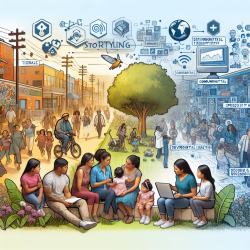Introduction
As practitioners dedicated to improving children's outcomes, it's crucial to understand the environmental factors affecting the communities we serve. A recent study titled Perceptions and experiences of environmental health and risks among Latina mothers in urban Los Angeles, California, USA provides valuable insights into how environmental health is perceived by Latina mothers in urban Los Angeles. This blog explores the key findings and their implications for practitioners.
Key Findings
The study conducted semi-structured interviews with 36 Latina mothers, revealing three major themes:
- Defining the Environment: Participants defined their environment in terms of both natural spaces and hazards. Common concerns included foul odors, dirtiness, noise, and visible pollution.
- Environment & Health Risks: Mothers expressed fears about how their environment could affect their health and that of their children, with specific concerns about respiratory health, asthma, allergies, and cancer.
- Social & Political Responsibility: Many mothers felt powerless to change their environment due to structural and political barriers, highlighting a need for broader policy changes.
Implications for Practitioners
Understanding these perceptions is crucial for practitioners working with children in similar communities. Here are some ways practitioners can apply these insights:
- Awareness and Education: Educate families about environmental health risks and empower them with knowledge to make informed decisions.
- Advocacy for Policy Change: Advocate for policy changes that address environmental health risks at a systemic level, rather than solely focusing on individual behavior changes.
- Community Engagement: Engage with community organizations to better understand and address the specific environmental health concerns of the communities you serve.
Encouraging Further Research
This study highlights the need for further research into environmental health perceptions among diverse populations. Practitioners are encouraged to engage in or support research efforts that explore these issues, as understanding the lived experiences of the communities we serve is vital for effective intervention.
Conclusion
By understanding the environmental health perceptions of Latina mothers in urban Los Angeles, practitioners can better support families in these communities. This study underscores the importance of community-driven research and the need for systemic changes to improve environmental health outcomes.
To read the original research paper, please follow this link: Perceptions and experiences of environmental health and risks among Latina mothers in urban Los Angeles, California, USA.










